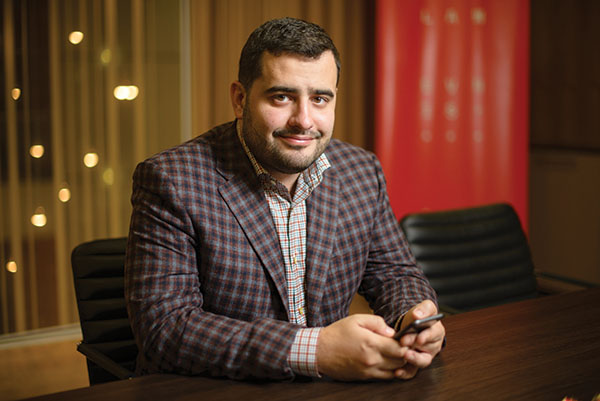Ever since the proclamation of Ukrainian independence in 1991, France has featured prominently in the imaginations of Ukrainians as a symbol of the country’s aspirations and an economic success story worthy of emulation. Unfortunately, Ukraine’s transition from planned economy to market economy has proven far more painful and lengthy than anticipated, and has been accompanied by a plethora of persistent problems ranging from corruption within the country to outside attempts to influence Ukraine’s post-Soviet transition. Nevertheless, the idea of aspiring to French standards has never lost its appeal. This is no accident. For many Ukrainians, contemporary France continues to serve as a byword for the freedoms and opportunities associated with the wider Western world.
Over the past twenty-eight years, many of the changes taking place on the geopolitical landscape have served to bring Ukraine and France closer together. Ukraine has become more integrated into the European Union, while France has emerged as one of the country’s key partners. This has been the case in both the political and economic spheres. It is also true in terms of culture, and it is fitting that France is scheduled to become one of the first countries to host a branch of the newly created Ukrainian Institute. Indeed, the entire Ukrainian Institute initiative owes much to the example set by the French Institute.
Economic cooperation is also progressing, with reports of growing bilateral trade as both countries enjoy the benefits of the Association Agreement between Ukraine and the European Union. The agricultural sector has traditionally played a central role in commercial ties and this remains the case, with rising French demand for Ukrainian grains and other agricultural commodities. At the same time, we are also seeing the growth of interest in the innovative segment of the economy. This is where the greatest opportunities for the further development of bilateral ties may now lie.
In my personal opinion, one of the most appealing projects in recent years has been the drive to construct solar energy plants in the area around the Chornobyl nuclear power plant. This concept is attractive for a number of reasons. It is rooted in solid economic arguments, while also aligning well with my vision of a greener approach to energy issues. It is undeniably an initiative with huge symbolic potency that reflects the transition from tragedy to hope. What was once a monument to man’s negligent attitude towards nature can now become a platform for renewal and a monument to more responsible decisions that pave the way for a sustainable future. It is particularly encouraging to note that France has been one of the driving forces behind efforts to develop solar power projects at Chornobyl.
In order to move the Franco-Ukrainian bilateral relationship to the next level, we need to increase the emphasis on hi-tech projects in areas like the renewable energy and IT sectors. Does Ukraine currently have the resources to meet French demand for hi-tech cooperation? Within Ukraine’s IT sector, France often features as a possible destination for relocation and employment, but mentions of France as a potential IT business partner tend to be less frequent. I am convinced this strategy is worth reviewing in order to upgrade the IT relationship between the two countries. Ukraine is ready to supply France with world class IT products instead of merely supplying IT professionals. The same is true in many sectors of the knowledge economy.
Given Ukraine’s acknowledged strengths, the tech sector offers some of the most promising opportunities to develop Franco-Ukrainian economic cooperation and deepen bilateral ties. This direction will also allow both countries to consolidate traditional focuses such as agriculture, as green energy in particular opens the way for the production of higher quality food while also reducing potentially negative factors. Ukraine is already moving in this direction, with the country’s booming IT industry playing an increasingly prominent role in the agribusiness sector. The introduction of technological innovations and IT knowhow to the Ukrainian agriculture industry holds the promise of improved product quality and increasing yields, allowing Ukrainian producers to benefit while helping the country to make the most of its traditional competitive advantages in the agrarian sphere. As a fellow agricultural superpower, France can potentially gain from the kind of technological innovations Ukraine can offer, while also sharing its own valuable and considerable experience.
Ukrainian-French relations have a long history that can be traced back to the eleventh century and the marriage of Yaroslav the Wise’s daughter Anne to French King Henry I. This relationship is in good health and poised to evolve further. It is already clear that as Ukraine continues along the road towards greater European integration, the country will necessarily develop closer ties with the continent’s economic leaders. The main challenge currently facing Ukraine is the need to move beyond traditional focuses such as commodities. This means actively exploring opportunities for mutually beneficial cooperation in knowledge-intensive sectors while promoting the kind of innovation that will bring advantages to the economies of both countries.
